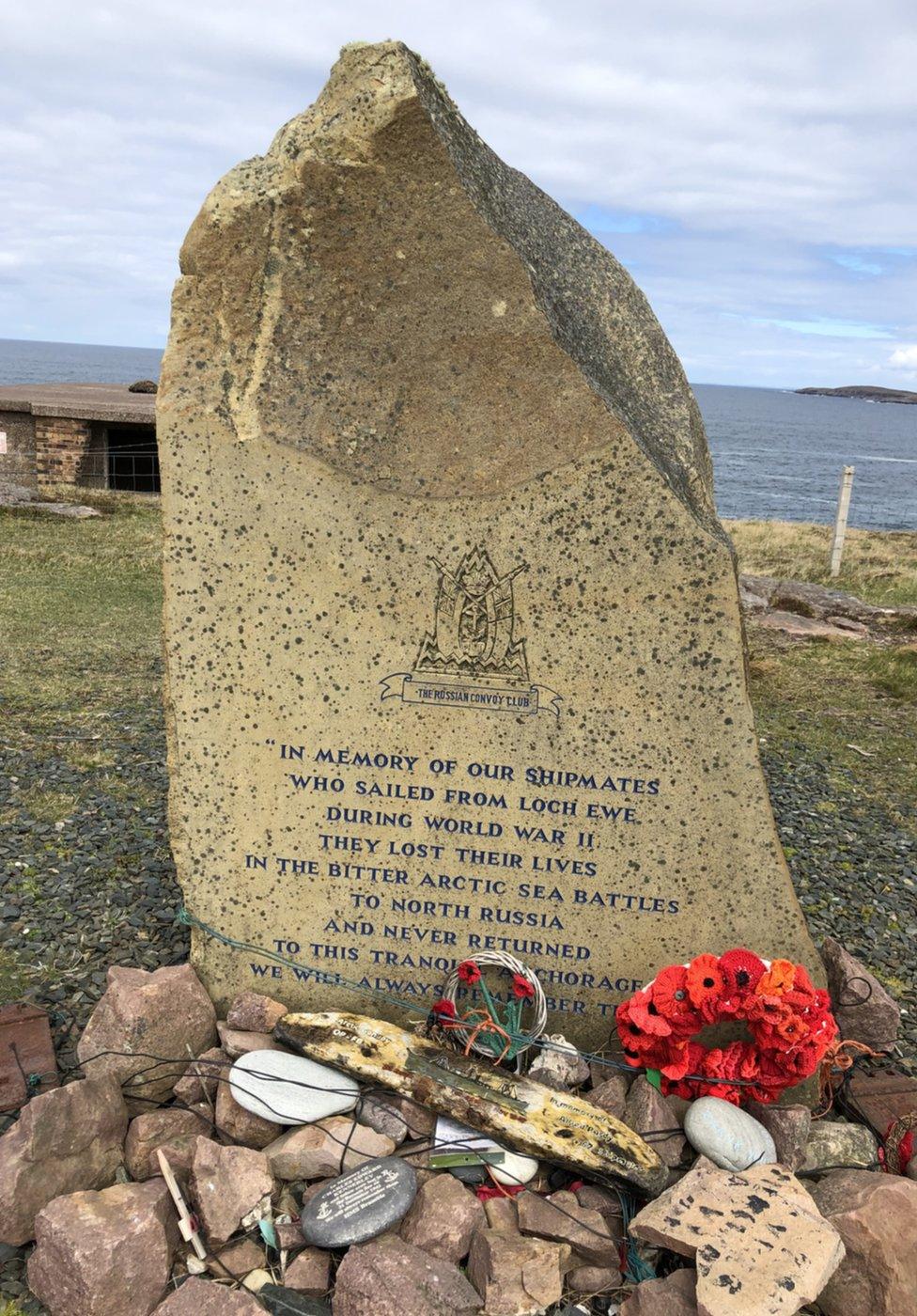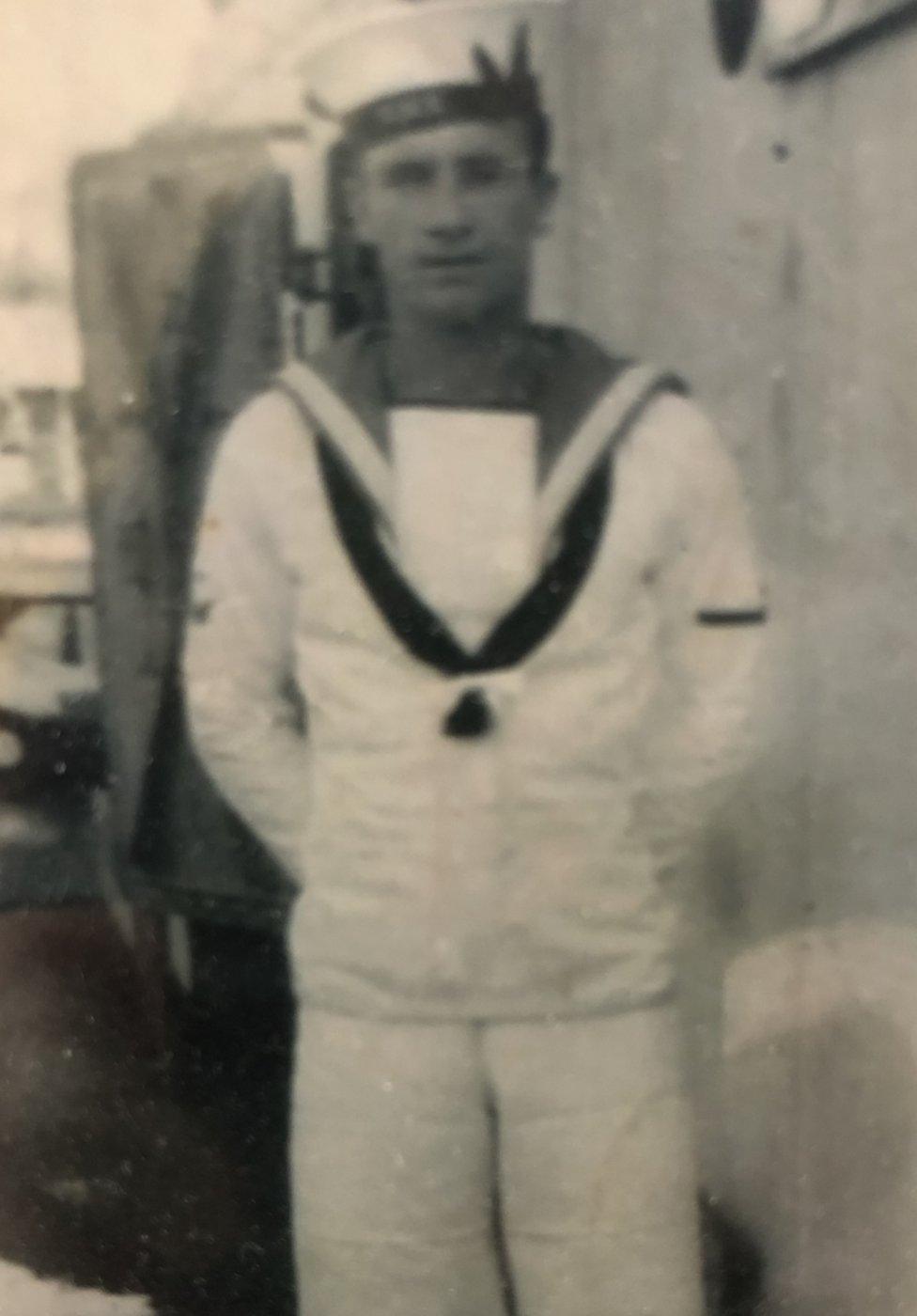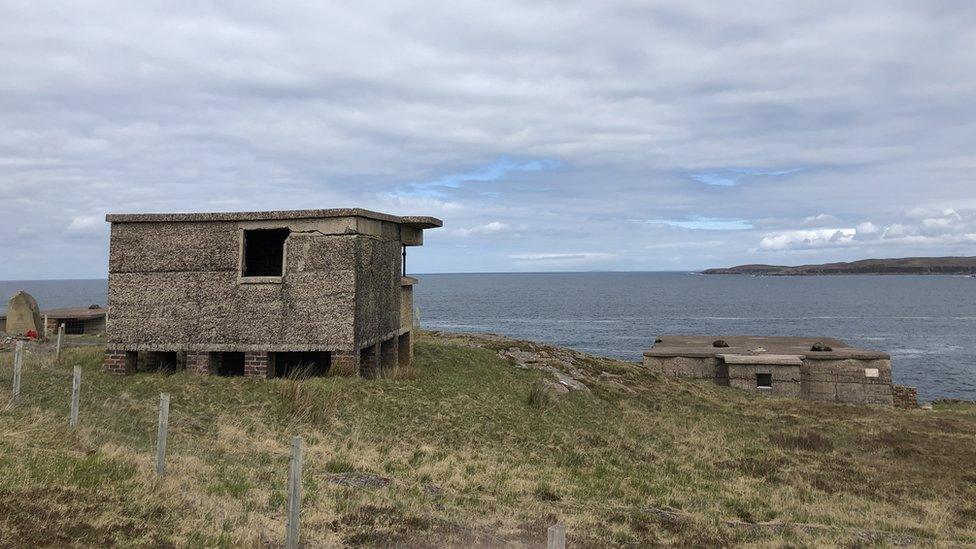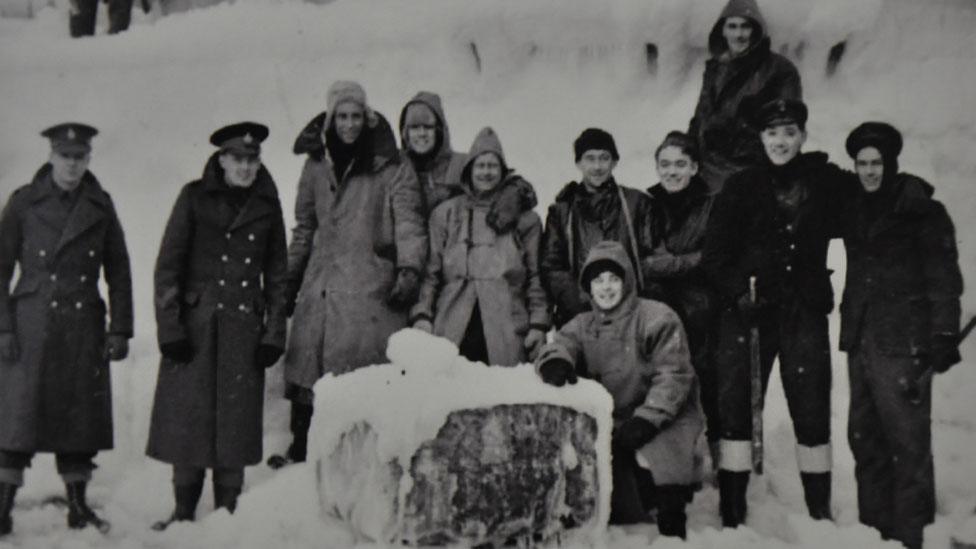Arctic convoys: ‘You only looked on them as an enemy’
- Published
Arctic convoys: ‘You only looked on them as an enemy’
Looking back now, Jack Patterson says the German U-boats which tried to sink the Arctic Convoys were just "the enemy" and it was "all part of war".
The 95-year-old, from Thornhill near Dumfries, took part in the vital World War Two missions to supply Russian Allies, which ended 75 years ago.
During the Arctic convoys, more than 3,000 Allied seamen lost their lives to the freezing conditions and attacks by U-boats or aircraft.
There were 78 convoys, starting in August 1941, after Germany invaded the Soviet Union.
They assembled in Loch Ewe in Wester Ross and travelled by sea via Iceland to the Russian ports of Archangel and Murmansk.
By the time they ended, in May 1945, the convoys had transported four million tons of supplies and munitions in what wartime Prime Minister Winston Churchill described as the "worst journey in the world".
A Scottish event to mark the 75th anniversary, to be held at Loch Ewe, has had to be postponed because of the Covid-19 pandemic.

A memorial stone at Poolewe on Loch Ewe in Wester Ross

Mr Patterson told BBC Scotland he was a young Naval telegraph operator at the start of 1944 when he was given the task of boarding an American submarine chaser which was being delivered to Russia.
His job was to keep in communication with the rest of the convoy during the six-day journey from Loch Ewe.
Mr Patterson says there were six submarine chasers as part of the convoy and one got damaged coming out of the loch so they all went to Fort William while it was repaired.
This unscheduled stop allowed him to get acquainted with his colleagues, who were all Russians, and with whom he could only communicate through hand signals and facial gestures.
Mr Patterson said he had never encountered anyone from Russia before but he was welcomed right away by the crew.
"You become friends," he says. "Friendship develops trust. It was a marvellous experience."

Mr Patterson was a young telegraph operator during the war

The seas on the crossing were always rough, Mr Patterson says, and it was especially bad in the small submarine cruiser, which had very few facilities.
But Mr Patterson says he was not frightened by the mission.
"I think it was probably the attitude at the time, 'we are the greatest'," he says.
"I always had a feeling that we were on top, we always had the advantage.
"It was probably wrong but in a way I never really felt frightened."
Many of the convoys had been very badly hit but Mr Patterson's arrived in Russian port of Murmansk unscathed.

Gun emplacements at Poolewe to protect the ships as the convoys gathered
On the way home, this time aboard a Royal Navy destroyer, he recalls two of the ships in his convoy being sunk by German U-boat submarines.
"It's all part of war," he told BBC Scotland.
"These are thing that happen. You half expected it to happen."
Mr Patterson says he did not witness the U-boat attacks because he was in the radio operations room but he experienced the effort to trace the German submarine and was told that it had been destroyed.
He says as far as he was concerned at the time the U-boats were just "the enemy" and did not contain real people.
"It's only maybe afterwards that you reflect and think these people had families and they were like us," he says.
The bravery of the men who served on the convoys was not recognised with a medal until almost 70 years later when they were awarded the Arctic Star. Russia also recognised the sailors' service with a medal.
- Published5 March 2020
